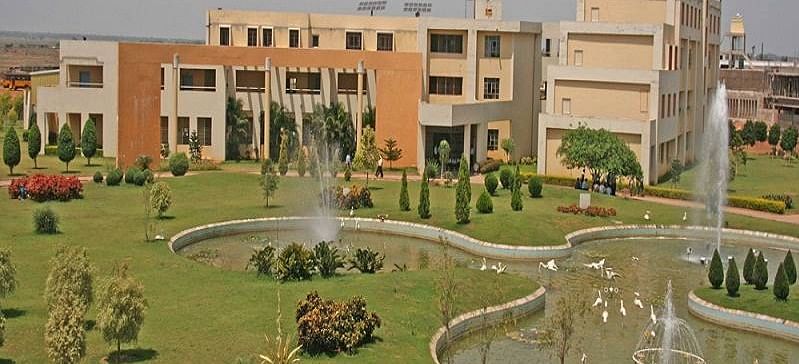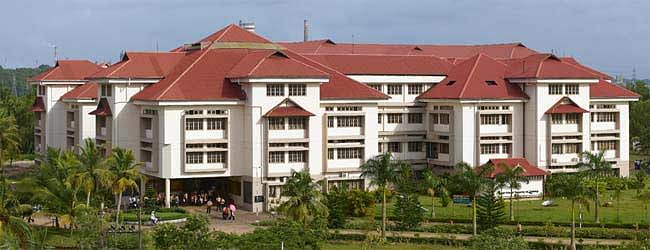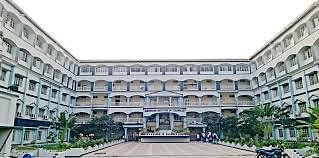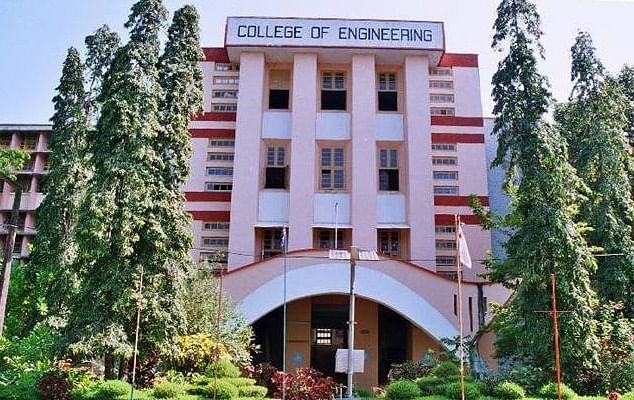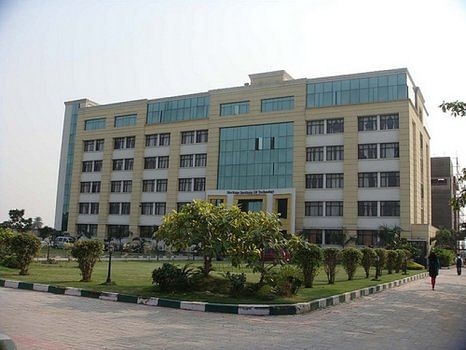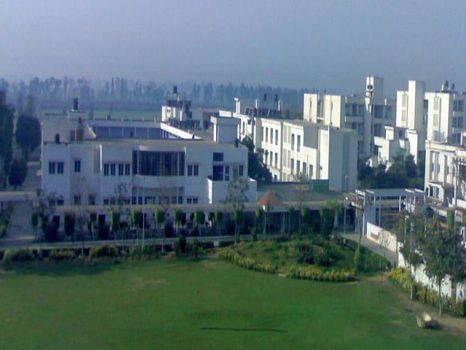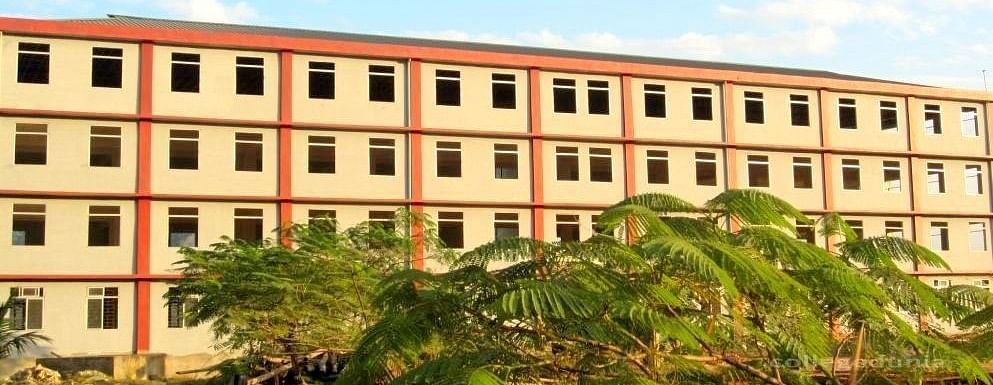B.Tech Applied Electronics and Instrumentation: Course Details, Eligibility, Fees, Admission

B.Tech Applied Electronics and Instrumentation is a 4 year undergraduate course that deals with core electronics and instrumentation subjects like very large-scale integration, semiconductors, embedded systems, biomedical instrumentation, etc. B.Tech Applied Electronics and Instrumentation Engineering course has a wide range of job opportunities in India since students can work in various sectors such as electrical appliances, automobiles, telecommunication, automation, etc.
Table of Contents
- About B.Tech Applied Electronics and Instrumentation
- How To Get Admission for B.Tech Applied Electronics and Instrumentation?
- Popular B.Tech Applied Electronics and Instrumentation Engineering Entrance Exams
- Top B.Tech Applied Electronics and Instrumentation Engineering Colleges in India
- Fee Structure for B.Tech Applied Electronics and Instrumentation Engineering
- Syllabus and Subjects for B.Tech Applied Electronics and Instrumentation Engineering
- Why Choose B.Tech Applied Electronics and Instrumentation Engineering Course?
- Preparation Tips for B.Tech Applied Electronics and Instrumentation Course
- Scope of Higher Education in B.Tech Applied Electronics and Instrumentation
- Salary of a B.Tech Applied Electronics and Instrumentation Engineer
- Career Options After B.Tech Applied Electronics and Instrumentation Engineering
- Skills That Make You The Best Applied Electronics and Instrumentation Engineer
B.Tech Applied Electronics and Instrumentation Course Details
| Degree | Bachelors |
| Full Form | Bachelor of Technology in Applied Electronics and Instrumentation |
| Duration | 4 Years |
| Age | 17-27 |
| Minimum Percentage | 50% |
| Average Fees | ₹15K - 1.2 LPA |
| Similar Options of Study | B.Tech Electrical and Electronics Engineering, B.Tech Electronics and Communication Engineering |
| Average Salary | INR 3.1 LPA (Source: Payscale) |
| Employment Roles | Instrumentation Engineer, Automation Engineer, Embedded Software Engineer, Test Engineer, Service Engineer, Electrician, Project Engineer, etc. |
About B.Tech Applied Electronics and Instrumentation
B.Tech Applied Electronics and Instrumentation aims to deliver technology-oriented expertise in fundamental electronics, instrumentation engineering, and broader applications. The B.Tech Applied Electronics and Instrumentation subjects cover the primary engineering principles, their implementation in various electrical systems, electrical circuit design, vehicle manufacturing, electronics design, control systems, etc. The course falls under the umbrella of the B.Tech degree and thus follows a similar admission process.
Eligibility Criteria for B.Tech Applied Electronics and Instrumentation
The exact eligibility requirements for B.Tech Applied Electronics and Instrumentation admission differ from college to college. The general B.Tech Applied Electronics and Instrumentation eligibility requirements adopted by most colleges, including the reputed government colleges, are discussed below:
- Aspirants must complete their 10+2 with physics, chemistry, mathematics, and english as core subjects.
- Applicants must score more than 50% of the aggregate marks in the class 12 board exam.
- Applicants must be over 17 years of age and must be medically fit.
How To Get Admission for B.Tech Applied Electronics and Instrumentation?
Although some colleges offer admission to B.Tech Applied Electronics and Instrumentation Engineering based on merit obtained in JEE Main, some colleges also conduct their entrance examination. The selection process for B.Tech Applied Electronics and Instrumentation Engineering course is either by direct entry or through a national entrance test, such as the JEE Mains. Though the admission process varies from college to college, below mentioned are the steps that one should go through generally to get admission:
How To Apply?
Aspirants may apply either online or offline. In both the procedures, one must submit the documents such as the aadhar card, class 10 and 12 mark sheets, address proof, etc.
Selection Process
The applicants who score more than the cutoff in the entrance exam will have the opportunity to enroll themselves in the e-counseling process. Registered applicants can see the number of colleges and streams accessible. In their order of preference, applicants can fill and lock their choices.
Read More on B.Tech Admission
Check other important B.Tech Courses
Popular B.Tech Applied Electronics and Instrumentation Engineering Entrance Exams
Engineering has long been the most popular course in India. To be admitted to engineering schools, applicants must qualify for the engineering entrance exams. Following are some national level, state level, and university level entrance tests:
A Quick Glance at the B.Tech Applied Electronics and Instrumentation Engineering Entrance Exams
Engineering entrance exams need a dedicated and planned study schedule. Class 12 students start preparing for the B.Tech entrance exams alongside their usual curriculum. Following are a few common points to remember when preparing for B.Tech Applied Electronics Instrumentation Engineering entrance exams:
- Engineering entrance exams test logical reasoning, mathematical and scientific knowledge.
- The exams usually last for three hours.
- Exams include objective questions.
- The entrance exam mode may be online or offline, depending on the university or governing body.
Top B.Tech Applied Electronics and Instrumentation Engineering Colleges in India
Like other engineering courses, B.Tech Applied Electronics and Instrumentation is an industry-oriented course. Following are the top colleges for B.Tech Applied Electronics and Instrumentation in India, according to NIRF:
| NIRF Ranking | Colleges |
| 30 | BITS Pilani |
| 85 | College of Engineering Trivandrum |
| 154 | Heritage Institute of Technology Kolkata |
| 157 | Maulana Abul Kalam Azad University of Technology |
| 160 | St. Joseph’s College of Engineering Palai |
Fee Structure for B.Tech Applied Electronics and Instrumentation Engineering
The B.Tech Applied Electronics and Instrumentation fees range between INR 15,000 - 1.26 LPA. The fees depend on infrastructure, reputation, and other facilities provided by the colleges. Following are the B.Tech Applied Electronics and Instrumentation fees in top colleges:
| Colleges | Fees (INR) |
| College of Engineering, Trivandrum | 24,000 |
| Netaji Subhas University of Technology (NSUT), Kolkata | 4.1 LPA |
| Heritage Institute of Technology, Kolkata | 3.2 PA |
| St. Joseph's College of Engineering, Palai | 3 PA |
Syllabus and Subjects for B.Tech Applied Electronics and Instrumentation Engineering
The B.Tech in Applied Electronics and Instrumentation course focuses primarily on the concepts and operations of measurement/electronic devices used in the design and configuration of automated systems. Applied Electronics and Instrumentation Engineering have a wide variety of applications in many industries.
Following are the subjects covered in B.Tech Applied Electronics and Instrumentation:
- Engineering Physics
- Engineering Mathematics
- Engineering Mechanics
- Engineering Drawing
- Signals and Systems
- Network Theory
- Digital Electronics
- Signal Communication
- Mechatronics
- Micro Electronics
- Robotics
- Bioinformatics
- Artificial Intelligence
Read More: B.Tech Applied Electronics and Instrumentation Engineering Syllabus and Subjects
Why Choose B.Tech Applied Electronics and Instrumentation Engineering Course?
Aspirants showing an interest in their childhood years and participating in science projects may find the B.Tech Applied Electronics and Instrumentation course interesting. Following short questions and answers explain further why one may choose B.Tech Applied Electronics and Instrumentation:
What is B.Tech Applied Electronics and Instrumentation Engineering All About?
B.Tech Applied Electronics and Instrumentation Engineering is an undergraduate degree that includes analyzing the different types of control systems used in the production line. Students also explore instrumentation boards using virtual instrumentation, advanced control systems, automation, industrial robots, and machine learning in the course. Thus, the B.Tech Applied Electronics and Instrumentation course opens a wide array of job opportunities.
What Does an Applied Electronics and Instrumentation Engineer Do?
Instrumentation engineers explore, design, and develop new systems and devices for managing, tracking, and regulating industrial processes and operations. Usually, these engineers work for automated process industries, such as manufacturing or chemical plants, to enhance system efficiency, reliability, protection, optimization, and stability. The following points highlight the electronics and instrumentation engineers' tasks:
Multitask: As an instrumentation engineer, one has to work closely with other members across various roles, including processes, procurement, and design.
Oversee: The instrumentation engineer's role includes overseeing operations, designing and creating new control systems, and reviewing data.
Presentation: Electronics and instrumentation engineers present results in written reports and evaluate them.
Maintain and Improvise: Electronics or instrumentation engineers modifying and maintain the existing systems for enhancing performance.
Reasons Why Applied Electronics and Instrumentation Engineering Can Fetch You a Rewarding Career?
Students with a keen interest in electronics/instrumentation should consider pursuing B.Tech Applied Electronics and Instrumentation Engineering. Following are a few reasons to study applied electronics and instrumentation engineering:
Market Demand: The ever-increasing demand for gadgets or other electronic solutions ensures ever-lasting demand for B.Tech Applied Electronics and Instrumentation Engineers
Career Growth: Continuous learning and upskilling ensure B.Tech Applied Electronics and Instrumentation Engineers grow to senior positions and higher salary packages in top companies. For example, senior instrumentation engineer, project manager, senior design engineer, etc.
Read More: B.Tech Applied Electronics and Instrumentation Jobs and Scope
Preparation Tips for B.Tech Applied Electronics and Instrumentation Course
The following preparation tips will help students to fare well in the B.Tech Applied Electronics and Instrumentation course:
Plan in Advance: Planning the study schedule will give adequate time for revisions and mock tests.
Be Proactive: Students should be proactive in asking queries and exploring beyond the syllabus.
Connect with Superiors: Superiors can give priceless tips to avoid the common pitfalls and overcome challenges.
Scope of Higher Education in B.Tech Applied Electronics and Instrumentation
Aspirants interested in acquiring in-depth knowledge in a specific specialisation in the electronics and instrumentation, can go for higher education. M.Tech courses are an excellent option. Students can also opt for a career in research post their M.Tech. Following are courses one can choose to study after completing B.Tech Applied Electronics and Instrumentation:
- M.Tech Electronics Engineering
- M.Tech Instrumentation and Devices
- M.Tech Process Instrumentation
- M.Tech Micro Electronics
- M.Tech Robotics and Automation Systems
- M.Tech Control System Instrumentation
Salary of a B.Tech Applied Electronics and Instrumentation Engineer
The average starting salary B.Tech Applied Electronics and Instrumentation Engineers is around INR 3.1 LPA. In their mid-career, B.Tech Applied Electronics and Instrumentation Engineers can draw around INR 5.4 LPA. Seasoned B.Tech Applied Electronics and Instrumentation Engineers earn as much as INR 12 LPA.
Read More: B.Tech Applied Electronics and Instrumentation Salary
Career Options After B.Tech Applied Electronics and Instrumentation Engineering
Electronics and instrumentation engineering jobs are available in multiple industries in the public and private sectors. Some departments hiring B.Tech Applied Electronics and Instrumentation Engineering graduates are research and development, thermal power stations, steel plants, refineries, cement and fertilizer plants, etc. Following are some job roles for B.Tech Applied Electronics and Instrumentation Engineering graduates:
- Sales Executive
- Component Engineer
- Project Engineer
- Testing Engineer
- Business Development Executive
- Marketing Executive
Skills That Make You The Best Applied Electronics and Instrumentation Engineer
All engineers are expected to have a good grasp of mathematics and physics. Instrumentation and electronics engineers must also have the following skills, as they find themselves in conditions where they can solve uniquely tricky problems:
- Creative Problem Solving Skills
- Customer Care Skills
- Communication Skills
- Critical Thinking
- Flexibility
- Team Working Skills
Top B.Tech Applied Electronics and Instrumentation Colleges
Top Engineering Entrance Exams
B.Tech Applied Electronics and Instrumentation Fee Structure
FAQs
Is Applied Electronics and Instrumentation Engineering related to EIE?
Yes, both the Applied Electronics and Instrumentation Engineering and EIE will come under the application-oriented studies of Electrical Engineering. Applied Electronics and Instrumentation Engineering is a direct application-based study of electronics and Instrumentation in the field of instrumentation and measurements which are further extended to the usage of automated control systems and industrial automation.
What is Applied Electronics and Instrumentation Engineering?
Applied Electronics and Instrumentation Engineering is an application-oriented branch of engineering which deals with the application and theoretical knowledge in electronics, electrical systems, instrumentation, measurements, and control systems and processing for any manufacturing process, measurement, and calibration of instruments, automation, etc.
What after Undergraduation in Applied Electronics and Instrumentation Engineering?
Graduates have several options to pursue after the completion of the Applied Electronics and Instrumentation engineering course. Graduates can opt to pursue higher studies such as M.tech/M.E in several Indian Institutes and abroad. Students can also take up automation research-based studies offered in several research institutes across the country.
What are the major applications of Applied Electronics and Instrumentation?
Applied Electronics and Instrumentation has a wide range of applications in manufacturing instruments and calibration techniques, construction of automation systems, Distributed control systems for assembly lines, and much more.
What is the average salary for an Applied Electronics and Instrumentation Engineer?
Graduates of this course can earn up to INR 5.69 Lakhs per annum at the initial stages of their career and further can earn more based on their experiences and work ethics.
